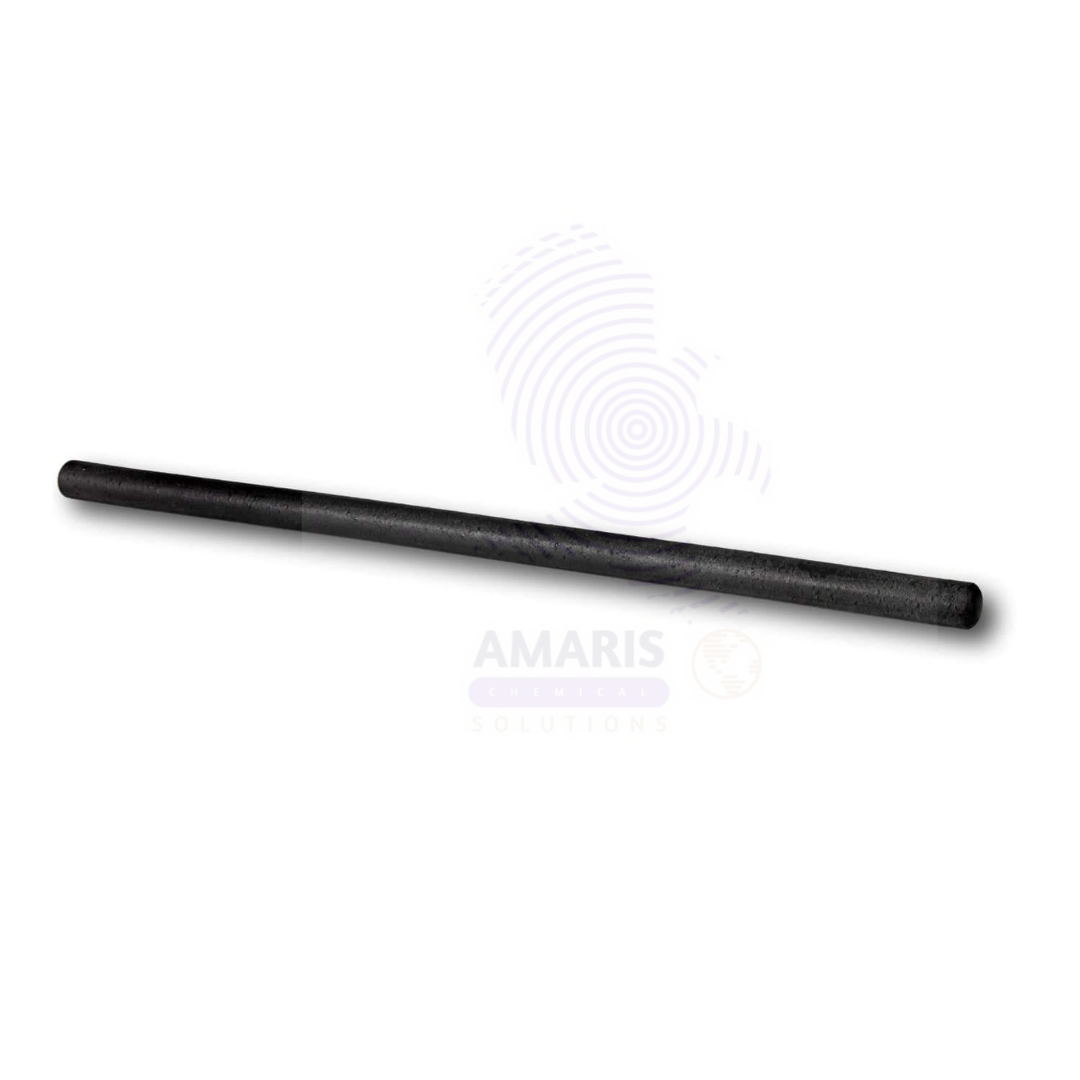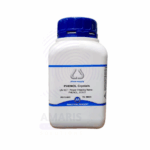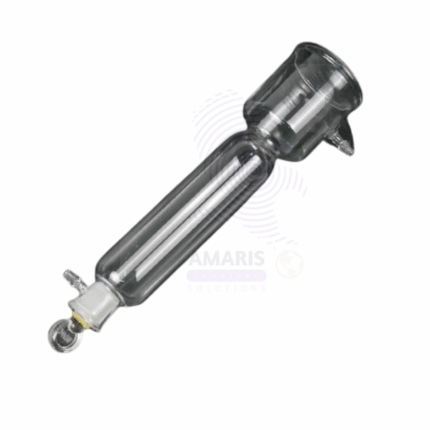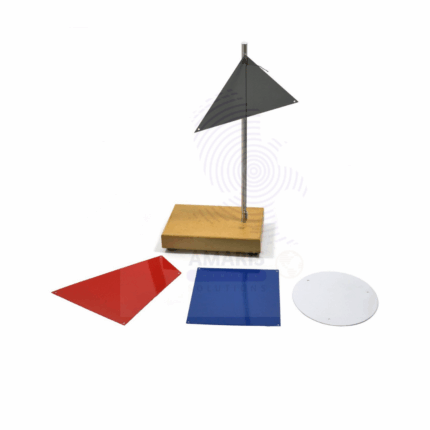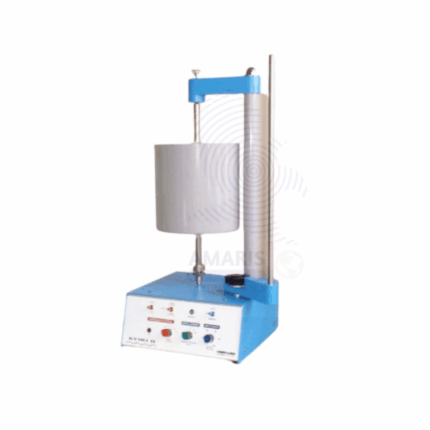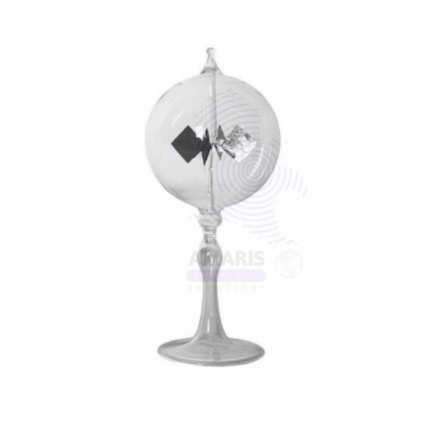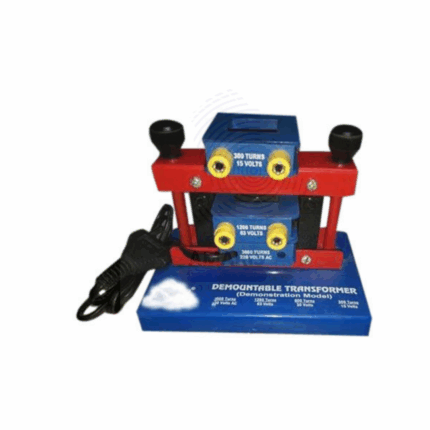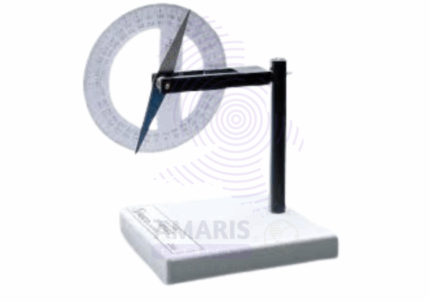
Ebonite Rod
$ 11.77 Original price was: $ 11.77.$ 11.61Current price is: $ 11.61.
Ebonite Rod is a solid, hard, and chemically resistant rod made from vulcanized natural rubber, commonly used in scientific and technical settings for its excellent electrical insulating properties. Due to the vulcanization process, ebonite becomes highly rigid and durable, exhibiting strong resistance to heat, chemicals, and mechanical wear. Its smooth, black surface is ideal for laboratory experiments involving static electricity where it can easily acquire and hold electric charge when rubbed with materials such as fur or wool. This makes the ebonite rod indispensable in physics demonstrations of electrostatics, including charging by friction and static force interactions. Besides educational use, ebonite rods are also utilized in manufacturing industries for producing components that require robust insulating materials. The rod’s chemical resistance ensures longevity even in harsh laboratory environments, making it a reliable tool for repeated use. Its non-conductive nature allows it to act as a barrier preventing electrical current flow, thus providing safety and control in experimental setups.
Ebonite Rod
Primary Uses
- Demonstration of static electricity principles and electrostatic charge accumulation in physics laboratories.
- Used as a reliable electrical insulator for various laboratory apparatus.
- Employed in electrostatics experiments for charge transfer via friction (rubbing with cloth).
- A key tool for studying electrical conduction, charge distribution, and insulation phenomena.
- Utilized in generating static electricity for teaching concepts of electrostatic forces and fields.
Secondary Uses
- Production of electrical components requiring durable insulating materials in manufacturing.
- Research tool for investigating material properties under static electric conditions.
- Used in technical workshops and training for understanding electrical safety and static control.
- Components fabrication in seals, gaskets, and insulating parts across various industries.
- Educational aid in arts and science workshops to demonstrate static charge and electric phenomena.
1.Basic Identification Attributes
- Material: Hard, vulcanized natural rubber known as ebonite.
- Form: Cylindrical rod with polished, smooth surface.
- Size: Available in multiple diameters and lengths to suit laboratory and technical needs.
2.Physical & Chemical Properties
- Exceptional electrical insulating capability with high resistance to current flow.
- Resistant to acids, alkalis, organic solvents, and most chemicals encountered in labs.
- Rigid structure with thermal stability within moderate temperature ranges.
- Appearance: Opaque black color with smooth finish.
3.Safety & Hazard Attributes
- Non-toxic under normal handling conditions; dust may irritate respiratory tract.
- Fragile edges can cause minor cuts or splinters if mishandled.
- Non-flammable but emits dense smoke upon burning.
4.Storage & Handling Attributes
- Store in a cool, dry environment away from direct sunlight to prevent degradation.
- Handle with gloves during machining or shaping to avoid splinters.
- Avoid prolonged exposure to strong oxidizing agents and high temperatures.
5.Regulatory & Compliance Attributes
- Manufactured under industrial safety and quality standards for technical and laboratory use.
- Compliant with safety norms for electrical insulating materials.
6.Environmental & Health Impact
- Not biodegradable but recyclable where facilities exist.
- Proper disposal recommended to minimize environmental contamination.
Safety Handling Precautions
- Use PPE such as gloves and safety goggles when cutting or shaping.
- Avoid inhalation of dust generated during mechanical processing.
- Keep away from open flames or high heat sources.
First Aid Measures
- Wash skin with soap and water if irritation occurs.
- Rinse eyes thoroughly with water if exposed to dust or particles.
- Treat cuts or splinters promptly; seek medical help if needed.
Firefighting Measures
- Use dry chemical or CO2 extinguishers for fires involving ebonite material.
- Avoid water-based extinguishing methods to prevent fire spread.
- Firefighters should wear protective gear to avoid inhaling toxic smoke.


 Preservatives(food)
Preservatives(food) Flavor Enhancers
Flavor Enhancers Acidulants
Acidulants Sweeteners
Sweeteners Antioxidants
Antioxidants Colorants(food)
Colorants(food) Nutraceutical Ingredients (food)
Nutraceutical Ingredients (food) Nutrient Supplements
Nutrient Supplements Emulsifiers
Emulsifiers
 Collectors
Collectors Dust Suppressants
Dust Suppressants Explosives and Blasting Agents
Explosives and Blasting Agents Flocculants and Coagulants
Flocculants and Coagulants Frothers
Frothers Leaching Agents
Leaching Agents pH Modifiers
pH Modifiers Precious Metal Extraction Agents
Precious Metal Extraction Agents
 Antioxidants(plastic)
Antioxidants(plastic) Colorants (Pigments, Dyes)
Colorants (Pigments, Dyes) Fillers and Reinforcements
Fillers and Reinforcements Flame Retardants
Flame Retardants Monomers
Monomers Plasticizers
Plasticizers Polymerization Initiators
Polymerization Initiators Stabilizers (UV, Heat)
Stabilizers (UV, Heat)
 Antifoaming Agents
Antifoaming Agents Chelating Agents
Chelating Agents Coagulants and Flocculants
Coagulants and Flocculants Corrosion Inhibitors
Corrosion Inhibitors Disinfectants and Biocides
Disinfectants and Biocides Oxidizing Agents
Oxidizing Agents pH Adjusters
pH Adjusters Scale Inhibitors( water)
Scale Inhibitors( water)
 Antioxidants(cosmetic)
Antioxidants(cosmetic) Emollients
Emollients Fragrances and Essential Oils
Fragrances and Essential Oils Humectants
Humectants Preservatives
Preservatives Surfactants(cosmetic)
Surfactants(cosmetic) Thickeners
Thickeners UV Filters
UV Filters
 Fertilizers
Fertilizers Soil Conditioners
Soil Conditioners Plant Growth Regulators
Plant Growth Regulators Animal Feed Additives
Animal Feed Additives Biostimulants
Biostimulants Pesticides (Herbicides, Insecticides, Fungicides)
Pesticides (Herbicides, Insecticides, Fungicides)
 Active Pharmaceutical Ingredients (APIs)
Active Pharmaceutical Ingredients (APIs) Excipients
Excipients Solvents(pharmaceutical)
Solvents(pharmaceutical) Antibiotics
Antibiotics Antiseptics and Disinfectants
Antiseptics and Disinfectants Vaccine Adjuvants
Vaccine Adjuvants Nutraceutical Ingredients (pharmaceutical)
Nutraceutical Ingredients (pharmaceutical) Analgesics & Antipyretics
Analgesics & Antipyretics
 Analytical Reagents
Analytical Reagents Solvents(lab)
Solvents(lab) Chromatography Chemicals
Chromatography Chemicals Spectroscopy Reagents
Spectroscopy Reagents microbiology-and-cell-culture-reagents
microbiology-and-cell-culture-reagents Molecular Biology Reagents
Molecular Biology Reagents Biochemical Reagents
Biochemical Reagents Inorganic and Organic Standards
Inorganic and Organic Standards Laboratory Safety Chemicals
Laboratory Safety Chemicals Specialty Laboratory Chemicals(Special Laboratory Equipment)
Specialty Laboratory Chemicals(Special Laboratory Equipment)
 Demulsifiers
Demulsifiers Hydraulic Fracturing Fluids
Hydraulic Fracturing Fluids Scale Inhibitors(oil)
Scale Inhibitors(oil) Surfactants(oil)
Surfactants(oil) Drilling Fluids
Drilling Fluids
 Dyes and Pigments
Dyes and Pigments Bleaching Agents
Bleaching Agents Softening Agents
Softening Agents Finishing Agents
Finishing Agents Antistatic Agents
Antistatic Agents
 Admixtures
Admixtures Waterproofing Agents
Waterproofing Agents Sealants and Adhesives
Sealants and Adhesives Curing Compounds
Curing Compounds Concrete Repair Chemicals
Concrete Repair Chemicals Anti-Corrosion Coatings
Anti-Corrosion Coatings
 Surfactants(cleaning)
Surfactants(cleaning) Builders
Builders Enzymes
Enzymes Solvents (Cleaning)
Solvents (Cleaning) Fragrances
Fragrances
 Electronic Chemicals
Electronic Chemicals Catalysts
Catalysts Lubricants
Lubricants Photographic Chemicals
Photographic Chemicals Refrigerants
Refrigerants Automotive chemicals
Automotive chemicals Pyrotechnic Chemicals
Pyrotechnic Chemicals
 Biodegradable Surfactants
Biodegradable Surfactants Bio-based Solvents
Bio-based Solvents Renewable Polymers
Renewable Polymers Carbon Capture Chemicals
Carbon Capture Chemicals Wastewater Treatment Chemicals
Wastewater Treatment Chemicals
 Pigments
Pigments Solvents(paint)
Solvents(paint) Specialty Coatings
Specialty Coatings Binders/Resins
Binders/Resins Additives
Additives Driers
Driers Anti-Corrosion Agents
Anti-Corrosion Agents Functional Coatings
Functional Coatings Application-Specific Coatings
Application-Specific Coatings
 Leavening Agents
Leavening Agents Dough Conditioners
Dough Conditioners Flour Treatments
Flour Treatments Fat Replacers
Fat Replacers Decoratives
Decoratives Preservatives(baking)
Preservatives(baking)
 Plasticizers & Softeners
Plasticizers & Softeners Reinforcing Agents
Reinforcing Agents Adhesion Promoters
Adhesion Promoters Vulcanizing Agents
Vulcanizing Agents Antidegradants
Antidegradants Blowing Agents
Blowing Agents Fillers & Extenders
Fillers & Extenders Accelerators & Retarders
Accelerators & Retarders